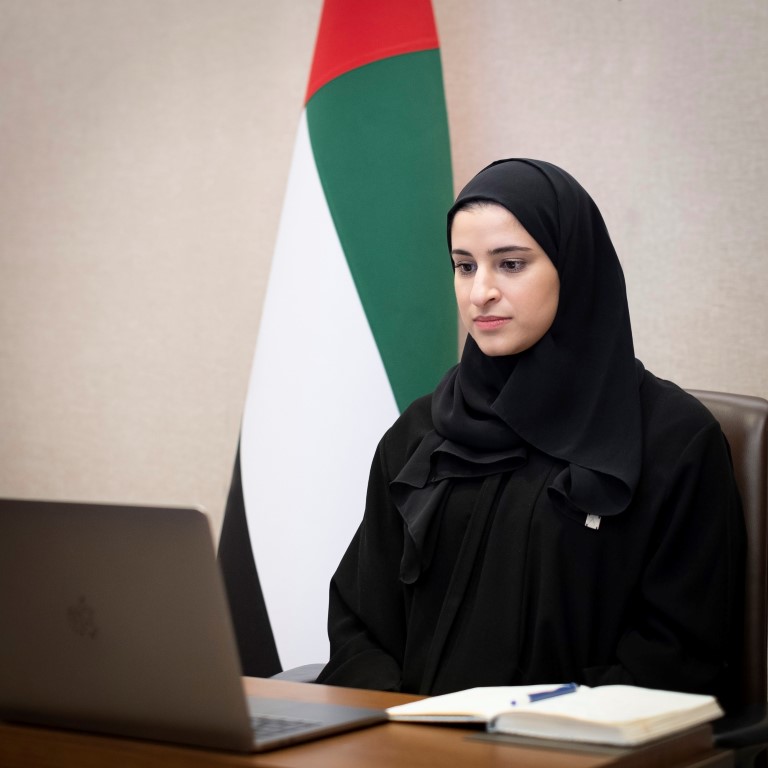The UAE has the potential to be the most prepared nation for the post-COVID1-9 era, thanks to its proactive vision whereupon the key elements of the Fourth Industrial Revolution, (4IR) are being utilised toward achieving the UAE Centennial 2071 goals, said Sarah bint Yousif Al Amiri, Minister of State for Advanced Sciences.
Al Amiri made the remarks while chairing the 4th meeting of the UAE Council for the Fourth Industrial Revolution, which took place in Dubai Tuesday, to discuss the proactive initiatives for the post COVID-19 era and means to tap advanced technologies in government work.
The meeting, which was attended by Omar bin Sultan Al Olama, Minister of State for Artificial Intelligence, and other Council’s members, also tackled the latest updates and the milestones of the initiatives adopted to harness advanced technology for improving government performance.
"The UAE Council for the Fourth Industrial Revolution fully supports the government’s effort to overcome the challenges caused by COVID-19 in a way that will reinforce UAE’s readiness for the future through adopting the 4IR technologies and harnessing technological innovation to drive sustainable development," Al Amiri said.
During the meeting, the Ministry of Health and Prevention reviewed the innovative and proactive initiatives launched nationwide to combat the COVID-19, and the employment of cutting-edge technology to ensure safe and rapid health services, including telemedicine consultations through video calls between the medical staff and patients.
MoHaP’s initiatives included the launch of a chatBot service titled Virtual Doctor for COVID-19. People can use the service to assess whether their symptoms could be associated with the novel coronavirus, COVID-19. The chatBot in the Virtual Doctor service asks questions relating to the persons’ travel history, if they have come in contact with someone who has travelled and is sick and if they have come in contact with someone known to have COVID-19. It also asks if the person is suffering from specific symptoms and about his health habits. Depending on the person’s answers, the chatBot will deduce if he/she is at risk. It will connect him/her to a doctor through the same service.
The attendees also reviewed the TraceCovid app which detects other devices that have the same app and shares proximity data with it. When two users who have installed the TraceCovid app come in contact with one another, a ‘Secure Tracing Identifier’ (STI) is exchanged and stored in their respective phones. This STI list contains the records of individuals that a user had close contact with. If one of the users is infected with the virus, the relevant authorities will be able to access the user’s data and timestamp and reach out to possibly infected individuals easily.
Hence, the app helps in tracking COVID-19 cases by auto-recording all the people who had been near a COVID-19 patient, including those that might not be known to the patient. The app functions on Bluetooth-enabled smartphones. The Bluetooth feature must remain active at all times for the application to read and determine the user’s exact location.
They also discussed the epidemiological investigation system that has been completed in 78 government facilities, and 33 private sector facilities in addition to 10 preventive medicine centers, nine isolation buildings, and one clinic run by the Ministry of Interior .




